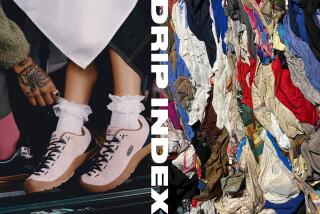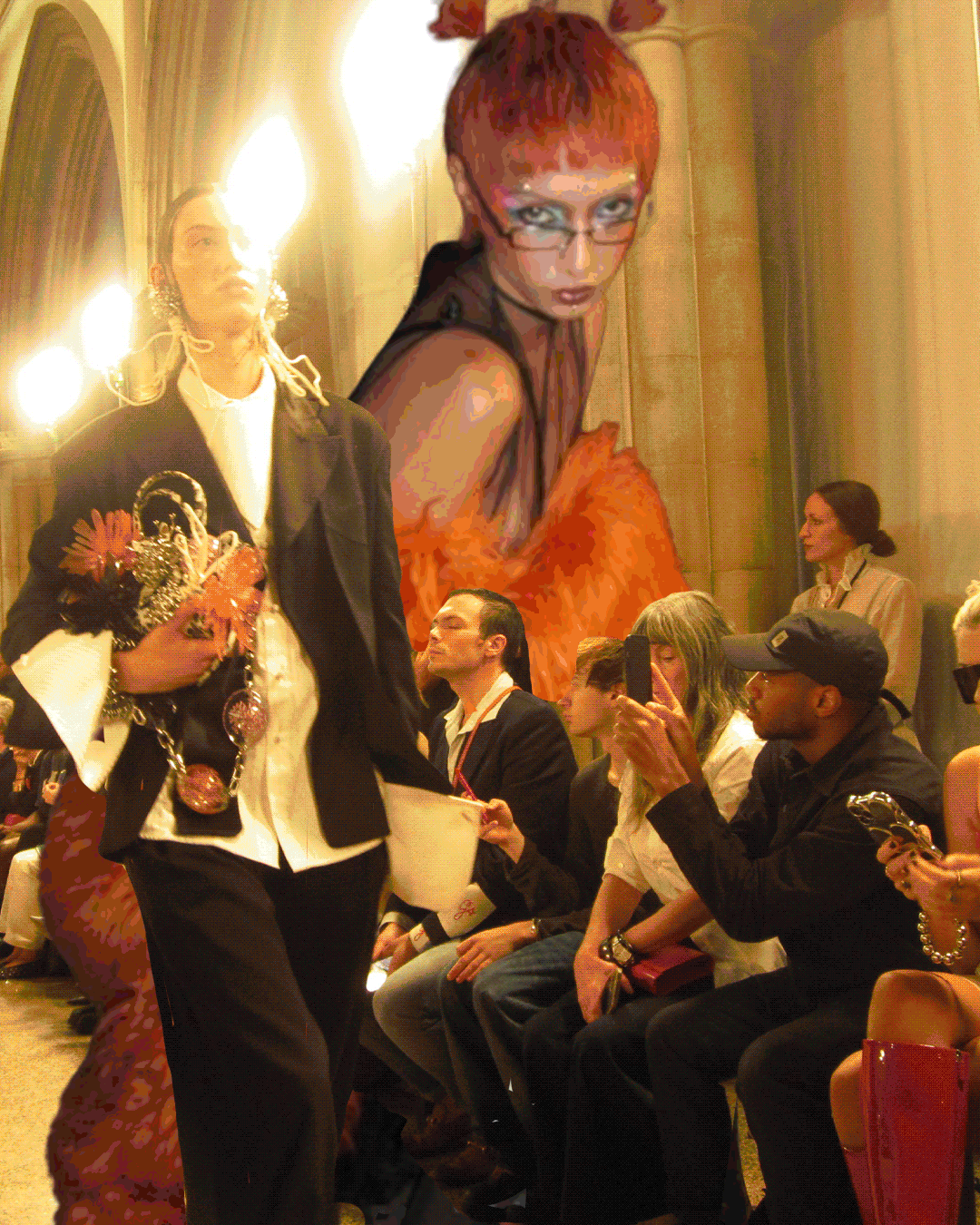Fall Fashion: For men, looks inspired by ‘The Matrix’ are one of this season’s biggest trends
If we are to accept that fashion designers are fortune tellers — working not with tarot cards or crystal balls but with sneakers and sweaters — then this fall many were looking back two decades to see what lies ahead. More specifically, to 1999, the year the sci-fi film “The Matrix” was released.
It was there in Demna Gvasalia’s sinister fall collection for Balenciaga, shown on the outskirts of Paris in a space that smelled of freshly poured asphalt and was lit in blood red. The designer showed broad-shouldered trenches of slick black leather paired with alien-like sunglasses, an otherworldly and futuristic look. Hedi Slimane’s collection for Céline was all razor-edged leather outerwear and dark shades while Daniel Lee’s debut at Bottega Veneta offered sleek and aggressive motocross pants topped with architectural jackets. The popular brand Alyx, designed by Matthew Williams, continued to traffic heavily in black S&M leathers, oversize outerwear and tactical accessories such as pocketed chest rigs and military belts.
Many of these designs could easily pass as costumes designed by Kym Barrett from the now-classic movie. Directed by Lilly and Lana Wachowski, as the two are now known, and starring Keanu Reeves, Carrie-Anne Moss and Laurence Fishburne, it’s the story of a future in which machines harvest energy from a crop of humans who are distracted by simulated reality (the titular Matrix). Reeves, as a computer hacker named Neo, ventures into the Matrix, dons a sexy, leather-clad, sunglass-sporting avatar, and starts raging against the machines.
There are a few reasons that designers may be adopting the movie’s dark, digital, dystopian aesthetic right now. This year marks its 20th anniversary and it will be returning to select theaters in the fall; a fourth installment with the original cast and creatives was announced last month. Reeves, an A-lister who mostly makes himself scarce, is fresh off a string of high-profile projects (the third installment of his “John Wick” series, the Netflix film “Always Be My Maybe,” and the fourth “Toy Story” movie) and, as a result, has been the subject of fawning profiles, laudatory think pieces, general social media swooning, and puppy videos. In April, Saint Laurent announced him as the star of its latest campaign.
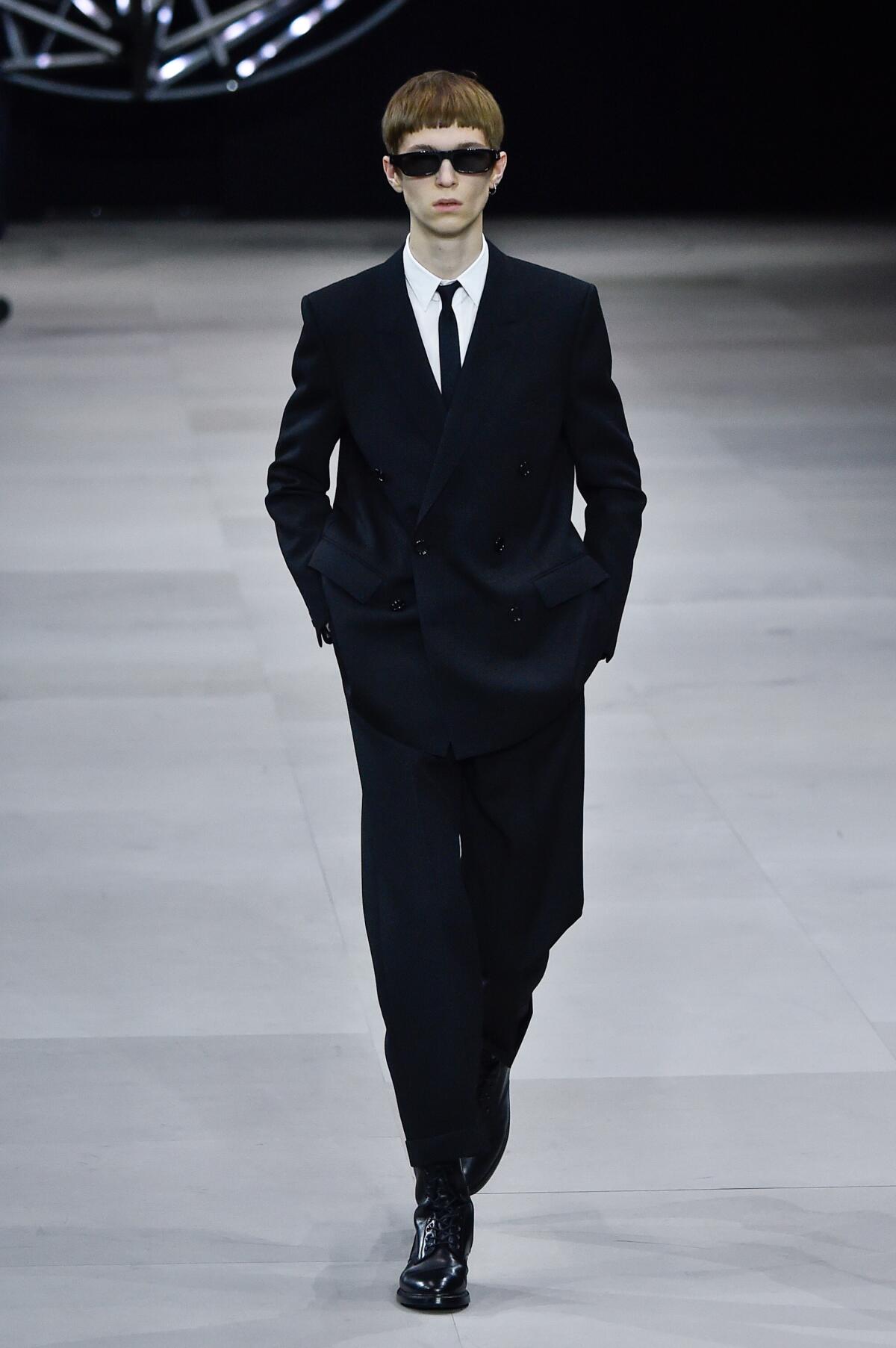
But there are other, ominous reasons that the film, and its sexy and strange vision of the future, feels so cannily relevant today. Reasons that involve our collective anxiety about social media and the existential war that is silently unfolding between tech companies and the general public.
“The movie foreshadowed a bigger sense of doom,” says Barrett, the costume designer who created the looks for “The Matrix,” which were, she says, inspired by Buddhist monks’ robes and ecclesiastical vestments. (Barrett also created the costumes for Baz Luhrmann’s “Romeo + Juliet,” making her responsible, in part, for the recent revival of Hawaiian shirts as well.) “With our present political climate and people’s lack of humanity, there’s really a huge dark cloud on the horizon. Subconsciously that mood is probably being reflected on the catwalk.”
Once touted as democratic and liberating, companies like Facebook, Amazon and Google are now seen as monopolies that profit from stealing our data and swaying elections. As we spend more time attached to our smartphones, the idea that technology is not freeing us but enslaving us — the core philosophy of “The Matrix” — is increasingly germane. To draw on the aesthetics of the film is a way for designers to engage with the increasingly complex feelings consumers have about technology’s pervasive effect on culture and society.
From statement skirts to bold animal prints, the fall fashion looks that Southern California retailers predict will be most popular with their customers this season.
“There are films like ‘The Matrix’ that were simply ahead of their time,” says Deborah Nadoolman Landis, a costume designer, fashion historian, professor and founding director of the David C. Copley Center for the Study of Costume Design at UCLA. (When I telephoned her, she answered by asking, “Are you calling me because Balenciaga’s fall collection could have been designed by Kym?”) Today, the movie’s theme of the perils of living “inside” the internet seem less like sci-fi and more like a cautionary tale. “The Wachowskis anticipated, or were prescient about, the web to come,” Landis adds.
Tapping “The Matrix,” with its distinctive visual language, is an easy way to conjure the feeling of technology-induced cultural ruin, which could be seen as a defining atmosphere of our times. “Frankly, distrust is a major macro trend we’ve been following for quite some time, so it doesn’t surprise me that movies like ‘The Matrix’ are inspiring a slew of collections,” says Michael Fisher, vice president and creative director at Fashion Snoops, a trend forecasting agency. “What’s real and what’s not is something we grapple with every single day as of late. We can’t trust our leaders, we can’t trust what we see on social media, we can’t even trust our employers a lot of the time. So it makes complete sense this skews design to be harsher, more intense, and more on the aggressive side of things. And Gen Z and some millennials are just now coming around to discovering all of the excitement and fear that evolved around Y2K.”
“I think right now we’re in such an uncertain time,” says Nico Amarca, the special projects editor, fashion, at Hearst Magazines, who indulges in the look himself. “Nostalgic about things that happened but also uncertain of where things are going. This look is an amalgamation of all of that, in a way,” he said, before adding: “And it looks cool. It’s a very Instagrammable look.”
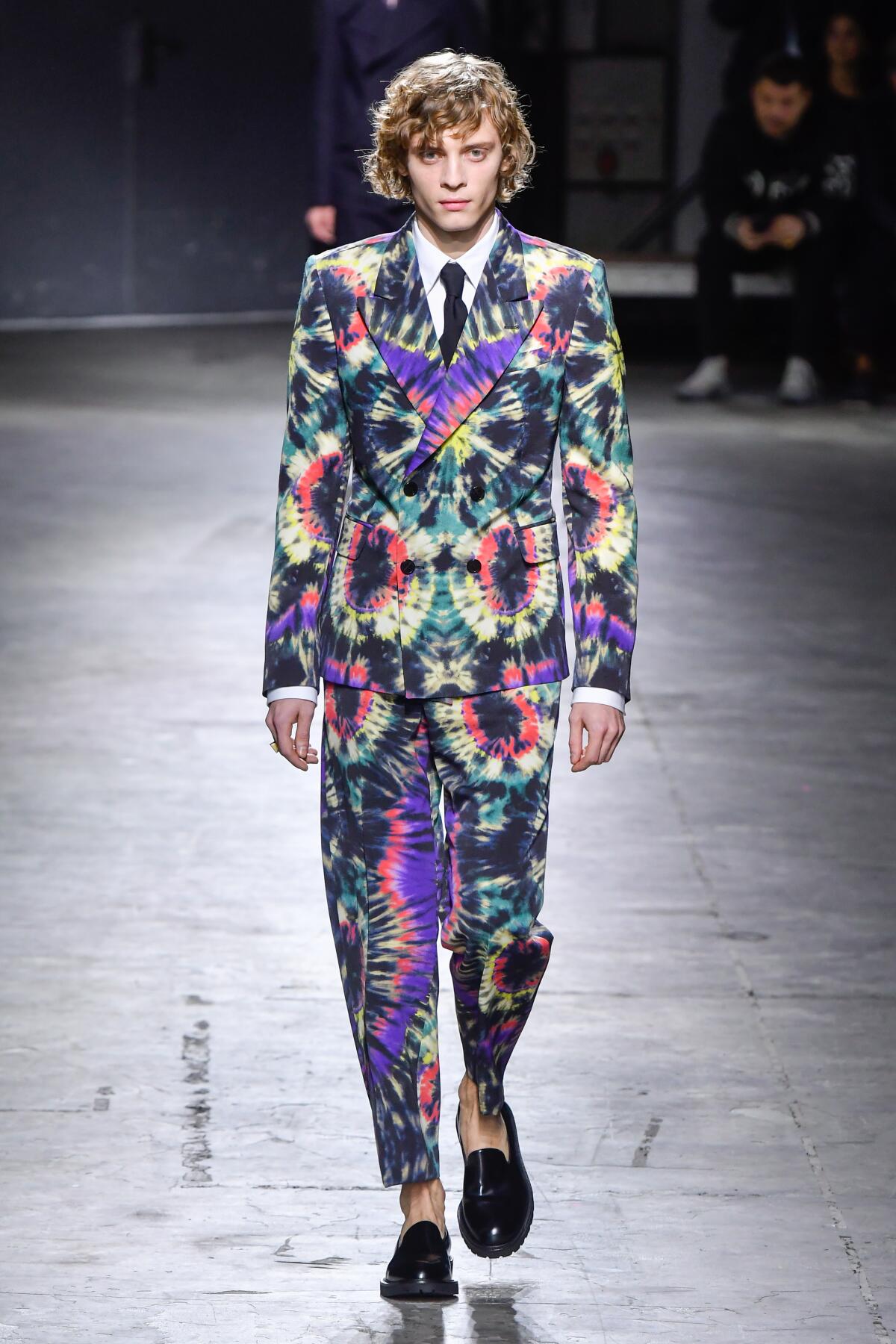
To his point, Amarca notes that the look trades in relatively quotidian items but recontextualizes them, making this a trend that’s easy for retailers to merchandise and fans to adopt. It helps that, unlike many films set in the future, “The Matrix” has aged surprisingly well. “What I like about its influence in contemporary fashion is this weird subversion of the corporate uniform,” he says. “Taking things like the trench coat or those Ray-Ban glasses your dad would wear and making it something hard looking and futuristic and weird. It’s almost a sort of cosplay.”
Landis agrees. “Those are our heroes, those are our current mythology,” she says. “That’s what we talk about when we talk about ‘The Handmaid’s Tale’ or ‘Game of Thrones’ — they’re the closest thing we have to mythology, to gods and goddesses. We want to adapt and feel strong and positive and the closest and cheapest thing we have to do is wear their clothes.”
Of course not every guy will want to dress up like a sadomasochistic superhero this fall. Luckily, a menswear mainstay is poised for a serious comeback (some may be surprised to hear it even left). The suit, which has fallen out of favor in recent years thanks to the explosive rise of streetwear, is in the midst of a revival. However, this isn’t your father’s fastidious tailoring or the corporate uniform or yore. In their fall runway collections, designers borrowed the laid-back flavor of streetwear and injected it into the once-formal category, yielding wonderful results.
Strong shoulders and eye-catching colors have made their way from the fall and winter 2019 runway to a cash register near you.
At the French brand AMI, designer Alexandre Mattiussi offered up a slightly oversized camel suit — with flowing trousers and worn with a white T-shirt and sneakers — that looks almost like a ’90s-era tracksuit. Pierre Mahéo of Officine Générale showed unstructured, louche tailoring in rich colors and lush fabrics, many with pleated, tapered trousers that look especially appealing and modern, like a classic suit minus the buttoned-up feel. Kim Jones at Dior Men rendered his with satin sashes, and Virgil Abloh at Louis Vuitton presented generously cut versions in gray. Dries Van Noten showed a terrific collection of classic tailoring emblazoned with tie-dye prints.
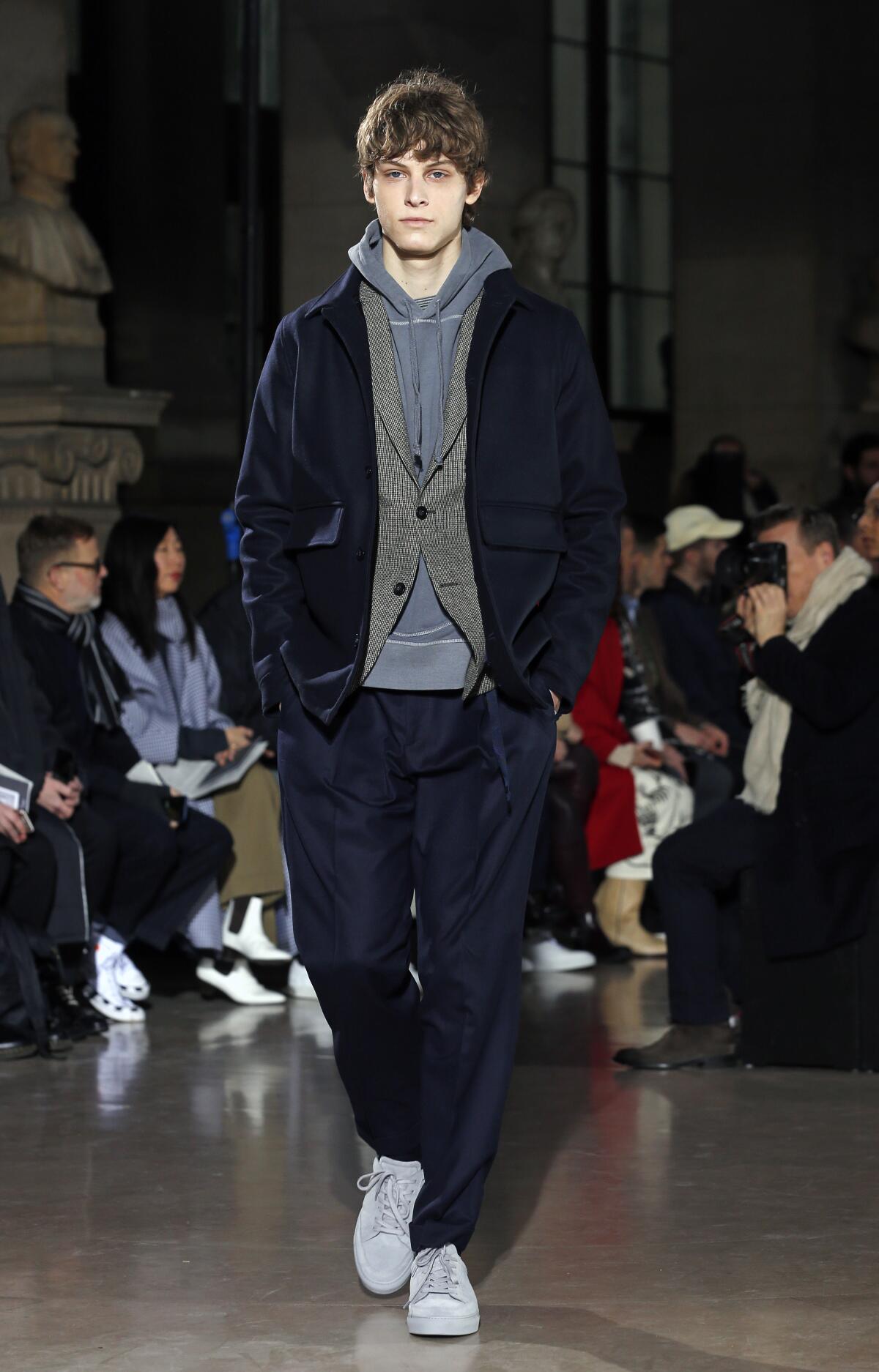
“What we do see more in our tailoring business, and particularly in custom tailoring, is more guys thinking about suits outside of the business dress realm,” says Greg Lellouche, founder and CEO of the store No Man Walks Alone in New York. “Suits they want to wear, not suits they have to wear. I wouldn’t call those necessarily casual suits, although some are — e.g., unstructured cotton suits — but definitely leisure suits. Something to wear with an open-collar camp shirt for a ’70s vibe or a corduroy suit for the winter. We seem to see more guys having some fun with designing non-business suits for themselves.”
Many retailers I’ve spoken with anticipate the suit to be an important part of their business in coming seasons. It’s a chance to reacquaint older customers to these fresh approaches from brands and in many cases introduce younger customers to the tailoring category. Bruce Pask, the men’s fashion director of Bergdorf Goodman, says that he loves the way designers are adding traditional “sartorial” elements to more casual looks — pairing a tailored topcoat with a hoodie, say, or these freer, louche cuts from more tradition-bound brands.
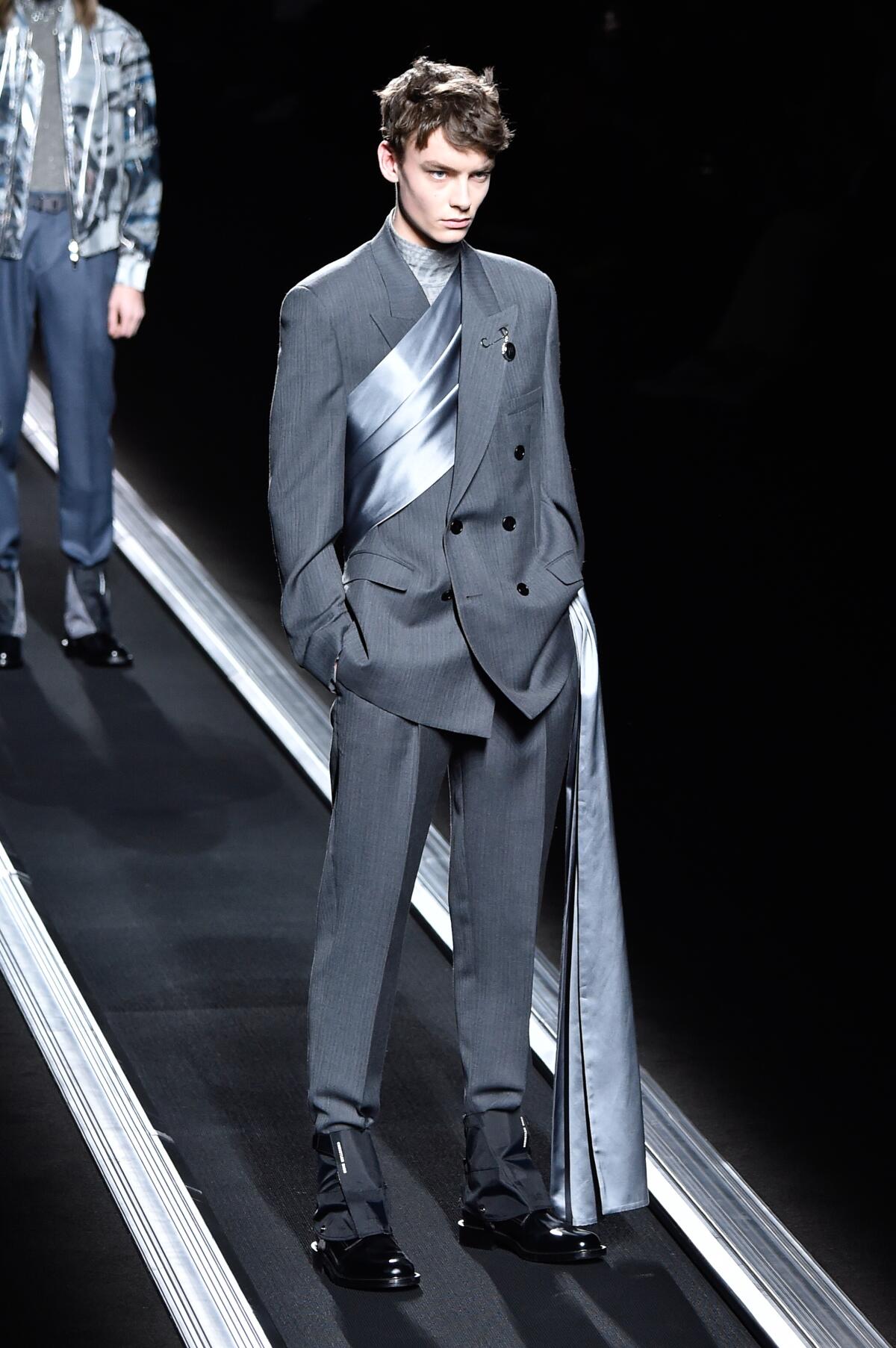
If you need proof that the suit really is having a moment, look to Supreme, the vanguard streetwear brand that’s still seen as the movement’s north star. Known for its hooded sweatshirts, baggy pants, graphic tees and skateboarding accessories, in recent seasons the label slyly added a suit or two to its seasonal collections, which are released weekly in the “drop” system (it’s the reason why you see young men line up outside its store on Fairfax Avenue each Thursday).
This fall, Supreme is offering a throwback sharkskin suit with notch lapels in muddy brown and blue. The popular streetwear website Highsnobiety gave it its blessing, saying, “There’s also a sick two-piece suit for anyone feeling like boasting a fancier flex this winter.”
More to Read
Sign up for The Wild
We’ll help you find the best places to hike, bike and run, as well as the perfect silent spots for meditation and yoga.
You may occasionally receive promotional content from the Los Angeles Times.
